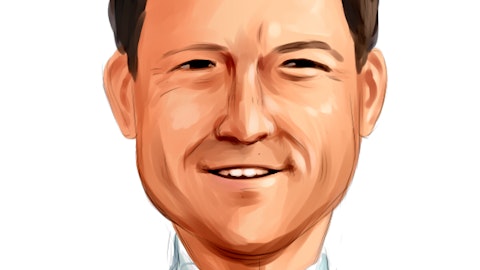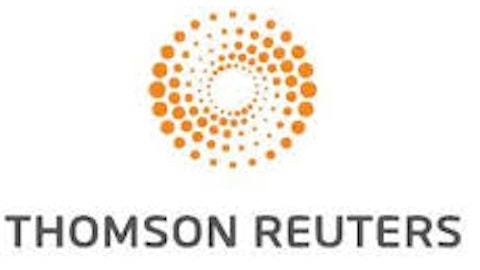Michael Eastwood: Yes, George, I would just supplement our cloud migration, which we are at roughly 50% of our revenue available in the cloud at the end of December ’22. Kirsty’s team is driving that to nearly 90s percent by the end of 2023. Elizabeth Beastrom’s Tax & Accounting Professionals business, we’re continuing to invest in confirmation, virtual office, UltraTax there. And then lastly, to support our sales go-to-market teams, we’re making continued sustained investments in our commercial tools and processes to help the sales team be more productive and efficient.
Operator: Our next question comes from Heather Balsky from Bank of America Securities.
Heather Balsky: There have been some headlines for the legal industry just regarding labor base and some layoffs and just tougher environment for the sector, especially at mid, I guess, lower deals and on the corporate side. I’m just curious kind of what you’re seeing with regards to demand from your customers and legal customers’ willingness to spend on a new tech going into potentially a tougher year in ’23?
Stephen Hasker: Yes. Heather, thanks for the question. So a couple of things. As we signaled in our comments, we saw an acceleration in Q4 in our core legal products franchise. So Westlaw, Practical Law, HighQ, products of that nature. We see that continuing. We’re not — our business model is not based on heads. So to the extent that the number of lawyers goes up or down, that doesn’t drive — there’s not a direct correlation. Instead, what we see is an acceptance across the legal profession. So large — global large to mid- to small firms, that they need to significantly up their investment in information and technology in order to be more productive, more profitable. And at the global large, that’s being driven by sort of demand from general counsels and all the way through, down to small where they just can’t get the talent.
The talent sort of shortages continues. And we don’t see that changing. So we do see a real tailwind here for our legal business in terms of TR as a key driver of a transformation of the profession to a much more technology-driven independent set of activities across general counsel’s offices and law firms. We’re pretty excited about playing a huge role in that in the coming years. And we think with Westlaw, Practical Law, HighQ, Contract Express, the acquisition of ThoughtTrace and our Document Intelligence plans, plus our M&A pipeline that we can be a sort of a significant beneficiary of that transformation over the next few years.
Michael Eastwood: Yes, Heather, I would just add in addition to law firms and general counsel, we also have government, which is a big user of our legal products. Westlaw Precision has now been adopted by 14 states, led by Steve Rubley’s team. We expect that to continue to expand in Q1 and Q2, and that’s a big draw. Once the states adopt Westlaw Precision, that’s a draw for law firms and others to get that.
Stephen Hasker: That’s the court systems.
Michael Eastwood: That’s correct.
Heather Balsky: That’s great to hear. And as a follow-up, just it’s helpful to hear what’s going on the legal market. Could you potentially provide some color on what you’re seeing on the consulting side as well? Again, just all the sort of macro uncertainty.
Stephen Hasker: Heather, can you just say a few more words to explain that one? In particular…
Heather Balsky: Yes. Just kind of where the demand is coming from on the consulting side and what you’re hearing from your customers, given some of the economic uncertainty.
Stephen Hasker: Yes. So we don’t have a big consulting or advisory business. We have some …
Heather Balsky: I apologize. That’s my bad. I actually meant accounting. I’m very sorry. I meant accounting. Sorry, yes. Sorry.





